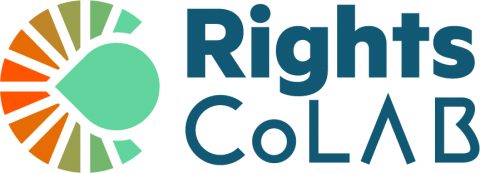The status quo of an aid and development system dominated by northern actors at the exclusion of those closest to affected communities, or indeed the communities themselves, is being challenged. However, real change is slow to materialise. While the global humanitarian community pledged commitments at the 2016 World Humanitarian Summit (WHS) to transform the humanitarian system to one that is more effective, efficient and fit for purpose, the localisation of humanitarian action has “remained largely conceptual, rather than a coherent and operational framework for change.” Now, five years on, the Charter 4 Change, the Grand Bargain commitments, and the Black Lives Matter (BLM) movement have converged alongside the COVID-19 pandemic to further challenge power dynamics and entrenched perceptions. The combined effect has raised new attention and opportunity to demand that the humanitarian system rethink its core assumptions, in order to realise a genuine paradigm shift in the sector.
One initiative that is seeking to bring about tangible change is the ‘RINGO Project‘ (Reimagining the INGO). The RINGO Project is a systems change initiative that seeks to transform global civil society to respond to today’s challenges, with particular focus on the role of the international non-governmental organisation (INGO). Commissioned by and in partnership with the RINGO Project, the Centre for Humanitarian Leadership (CHL) is supporting the project by undertaking a desk review on the relevant literature and initiatives focused on change in the aid and development system.
Purpose and Scope
The purpose of this resource is for the use of practitioners in keeping up to date with the evolving discussions in this area, and promoting greater awareness of actions, knowledge-sharing, and collaboration among humanitarian actors, with the aim of better understanding how global civil society is responding to today’s challenges.
In working towards a paradigm shift in the sector, this resource intends to lay the foundation for further conversations, as well as challenging, what is transformational change in the aid sector and the importance of identifying intention around a particular approach, and poses questions for further discussion by aid and development actors, such as: ‘What is defined as ‘disruptive’ transformational change?’, ‘Are particular innovations framed as ‘transformational’, actually accomplishing transformational change in the aid sector?’ and ‘What activities have demonstrated that they can generate disruptive transformation in the system?’
The resource consists of eight thematic papers. Each paper maps various initiatives under key areas that cover: localisation, decolonising aid, business operating models, funding models and finance, technology and innovation, leadership and diversity, ways of working, and partnerships. The format of each paper introduces the topic, and collates a range of research, resources, and practical tools, as well as outlining good practice examples and case studies, that provide real-life examples of the role of INGOs in spearheading, facilitating, or supporting change.
The RINGO Project is taking a multi-disciplinary look at the role of INGOs, which includes development, humanitarian, human rights, peacebuilding environmental and other specialised organisations. Thus, while this resource focuses largely on the humanitarian system, it also borrows experience from other sector initiatives including among others, business and corporate, climate change and human rights. Also, to note, the disclaimer that the RINGO Project and CHL does not endorse every point or idea laid out in the materials.
The reports cover a range of formats including:
- Academic literature,
- “Grey literature” including policy publications, evaluations, foresight analysis, blogs, books, podcasts, and key influencers contributing to the discussion,
- Case study examples from organisations and individuals enacting change in their work.
Within the resource, language that refers to civil society organisations (CSO), is used interchangeably with national non-government organisations (NNGOs), local non-government organisations (LNGO), and community-based organisations (CBO), depending on the language used in the resource itself.
Local non-government organisations (LNGO) and community-based organisations (CBO) have been defined by a number of actors in the sector as “operating in a specific, geographically defined, subnational area of an aid recipient country, without affiliation to an international NGO/CSO.” Within the resource, language that refers to civil society organisations (CSO), is used interchangeably with LNGOs and CBOs.
Whilst these publications are by no means intended to be an exhaustive list, these resources within them offer reflection and inspiration as to how some organisations and actors are ‘doing things differently’ in the sector.
This project was developed in partnership with the RINGO Project, hosted by Rights CoLab—an open platform for facilitating collaborative efforts to advance human rights, among experts with diverse perspectives in the fields of civil society, technology, business and finance. Many thanks to the IKEA Foundation for supporting the initiative.
Read the papers:
- Localisation
- Decolonising Aid
- Business operating models
- Funding models and finance
- Ways of working
- South-South and North-South Partnerships
- Technology and Innovation
- Leadership and Diversity


